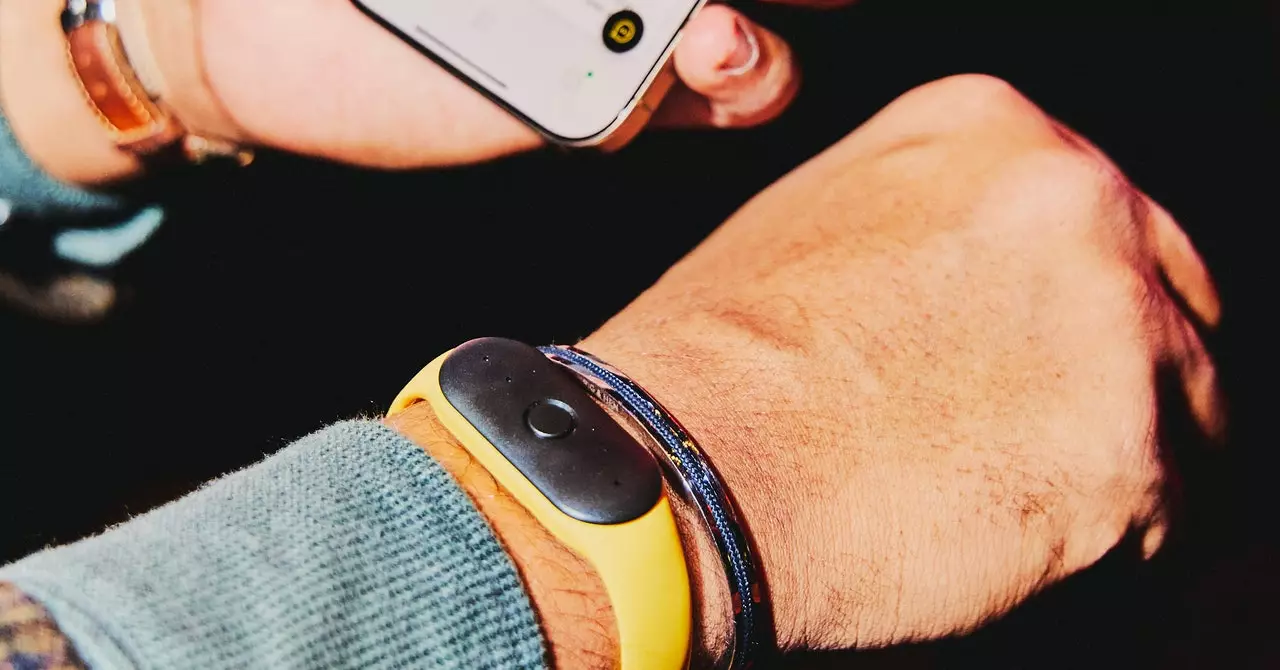As technology seamlessly integrates into our everyday lives, the emergence of ambient intelligence signifies a transformative shift in how we interact with the world around us. Leading this revolution are companies like Bee AI and Omi, which are redefining the concept of personal assistants through innovative wearable devices. These gadgets promise more than just fitness tracking; they act as omnipresent companions, recording and processing our environment to provide actionable insights and streamline our lives.
When one thinks of wearable technology, fitness monitors usually come to mind. However, devices like the yellow Pioneer from Bee AI exhibit capabilities that extend far beyond step counting or heart rate monitoring. The Pioneer resembles a standard fitness tracker but operates on a different level. It records conversations and surroundings, weaving these inputs into personalized to-do lists and summaries that help users navigate their daily interactions. This level of interaction raises pertinent questions about privacy, consent, and data ownership, ultimately challenging consumers to rethink the implications of adaptive technology.
Similarly, Omi’s introduction to the CES landscape showcased a device that intricately blends neural monitoring with environmental awareness. By incorporating electroencephalogram (EEG) technology to detect cognitive signals, Omi’s wearable stands out by allowing users to interact with it through focused thought. This provides yet another layer of complexity surrounding the devices that are becoming more attuned to our mental processes. Such advancements signal a new epoch where the line between human cognition and artificial analysis blurs, invoking both excitement and skepticism regarding potential cognitive intrusion.
The evolution of voice assistants has been characterized by a gradual migration from passive to active engagement. Traditional voice assistants typically required a designated wake word or button press to activate their functionalities. In contrast, the next wave of technology exemplified by ambient-enabled devices offers continuous listening capabilities, enabling them to capture inputs without direct user interaction. This represents a subtle yet profound shift in how businesses approach personal assistance, moving towards a paradigm where devices are always “on” and ready to assist.
The practical applications of such technology are vast, from organizing daily tasks to enhancing interpersonal communication. Bee AI and Omi exemplify how environments once deemed ‘private’ are becoming sources of readily accessible data, transferring the responsibility of managing this information to software systems powered by advanced artificial intelligence. However, this also sparks discussions about the ethics of surveillance in personal spaces and the potential for misuse.
A notable feature of these wearables is their affordability, with Bee AI’s Pioneer priced at just $50 and Omi’s device available for $89. This cost-effective nature has the potential to democratize access to advanced technology, empowering numerous users who may have previously dismissed high-tech gadgets as out of reach. However, a significant caveat lies in the subscription-based software that powers these devices. As AI continuously evolves, so do the underlying platforms that process and analyze user data, raising questions about long-term costs and sustainability for consumers.
It’s essential to recognize that the value of these wearables doesn’t solely reside in their hardware. The real innovation emerges from their ability to leverage machine learning algorithms and natural language processing, turning everyday conversations into insightful analysis. By tapping into large language models, these devices can glean and interpret user interactions in real-time, providing not just an overview of day-to-day activities but also actionable suggestions based on behavioral patterns.
As we stand on the brink of becoming increasingly reliant on ambient intelligence, the societal implications of these advancements cannot be overlooked. With companies like Bee AI and Omi pushing the envelope, it’s vital for users to navigate this new landscape with a degree of caution. Understanding the nuances of data privacy, consent for recording, and the ethical considerations surrounding passive data collection is crucial.
In closing, while the allure of AI-powered wearables lies in their potential to enhance productivity and provide personalized assistance, it is incumbent upon consumers to approach these innovations with both enthusiasm and vigilance. The emerging world of ambient intelligence holds incredible promise, but only if we remain actively engaged in driving conversations about privacy, responsibility, and the social contract we share with technology.


Leave a Reply